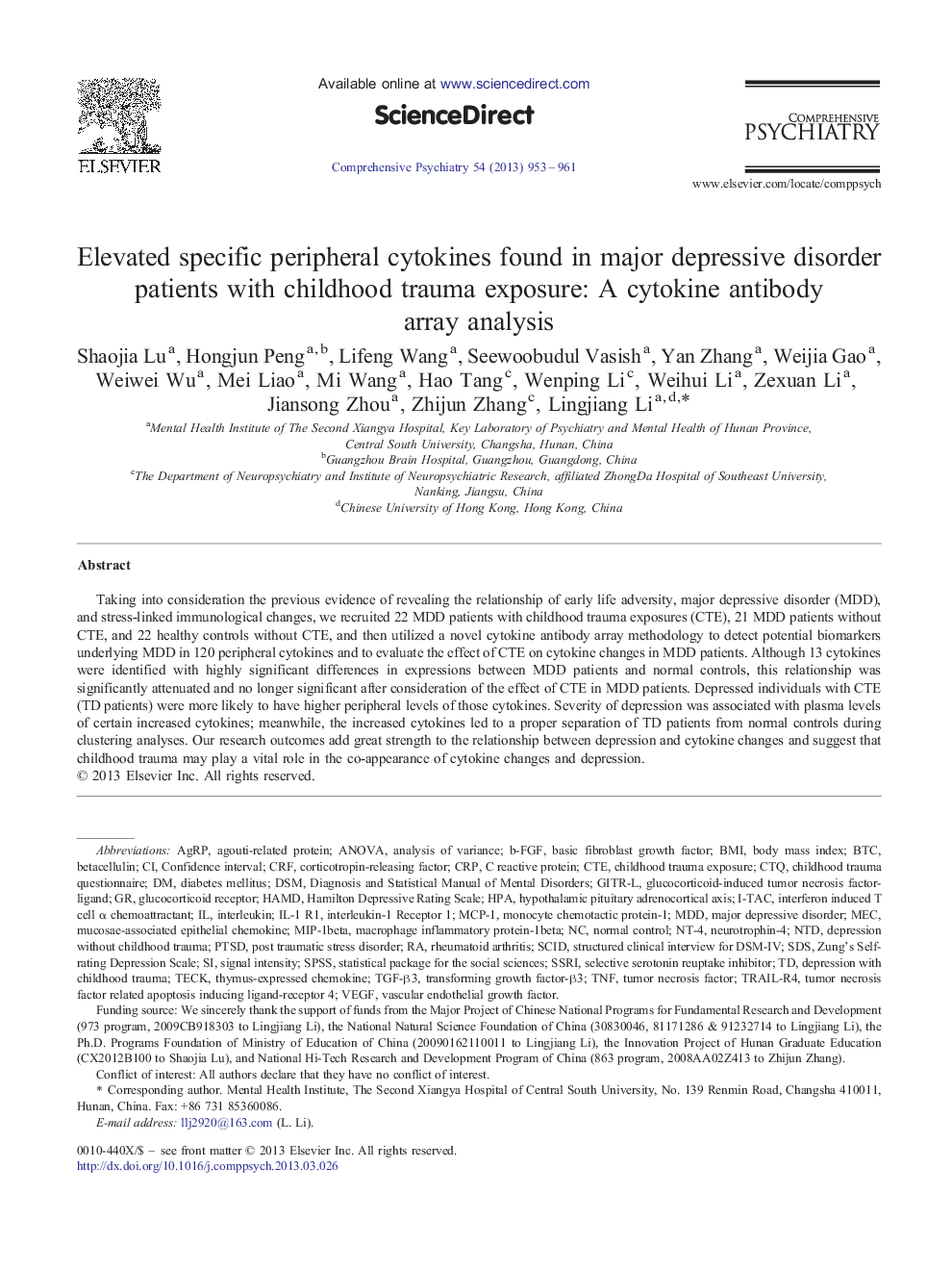| Article ID | Journal | Published Year | Pages | File Type |
|---|---|---|---|---|
| 10297592 | Comprehensive Psychiatry | 2013 | 9 Pages |
Abstract
Taking into consideration the previous evidence of revealing the relationship of early life adversity, major depressive disorder (MDD), and stress-linked immunological changes, we recruited 22 MDD patients with childhood trauma exposures (CTE), 21 MDD patients without CTE, and 22 healthy controls without CTE, and then utilized a novel cytokine antibody array methodology to detect potential biomarkers underlying MDD in 120 peripheral cytokines and to evaluate the effect of CTE on cytokine changes in MDD patients. Although 13 cytokines were identified with highly significant differences in expressions between MDD patients and normal controls, this relationship was significantly attenuated and no longer significant after consideration of the effect of CTE in MDD patients. Depressed individuals with CTE (TD patients) were more likely to have higher peripheral levels of those cytokines. Severity of depression was associated with plasma levels of certain increased cytokines; meanwhile, the increased cytokines led to a proper separation of TD patients from normal controls during clustering analyses. Our research outcomes add great strength to the relationship between depression and cytokine changes and suggest that childhood trauma may play a vital role in the co-appearance of cytokine changes and depression.
Keywords
CRFhypothalamic pituitary adrenocortical axisTNFTECKI-TACb-FGFCTQTGF-β3NTDNT-4SCIDAgRPMCP-1SPSSMDDBTCMECDSMCTESDSRheumatoid arthritisPost traumatic stress disorderPTSDMajor depressive disorderinterleukinBetacellulinStatistical Package for the Social SciencesTransforming growth factor-β3analysis of varianceANOVADiabetes mellitusbody mass indexBMIsignal intensitycorticotropin-releasing factorconfidence intervalVascular endothelial growth factorVascular Endothelial Growth Factor (VEGF)basic fibroblast growth factortumor necrosis factorstructured clinical interview for DSM-IVSelective serotonin reuptake inhibitorSSRIHPANeurotrophin-4HAMDChildhood Trauma QuestionnaireMonocyte chemotactic protein-1Agouti-related proteinC reactive proteinCRPNormal controlthymus-expressed chemokineglucocorticoid receptor
Related Topics
Life Sciences
Neuroscience
Biological Psychiatry
Authors
Shaojia Lu, Hongjun Peng, Lifeng Wang, Seewoobudul Vasish, Yan Zhang, Weijia Gao, Weiwei Wu, Mei Liao, Mi Wang, Hao Tang, Wenping Li, Weihui Li, Zexuan Li, Jiansong Zhou, Zhijun Zhang, Lingjiang Li,
